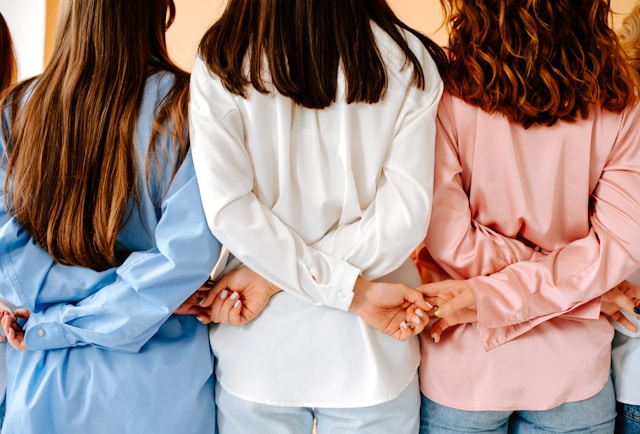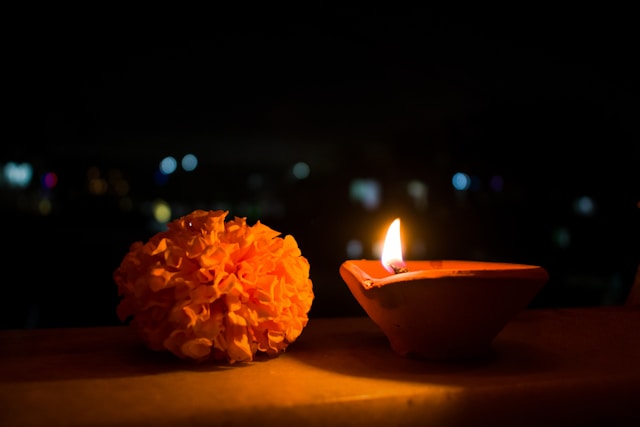Understanding the Depths of Grief
Loss is an inevitable part of the human experience, yet it remains one of the most challenging aspects of our lives. Whether it’s the death of a loved one, the end of a significant relationship, or another form of profound loss, the emotional and psychological impact can be overwhelming. Understanding grief and the various ways it manifests is the first step towards healing through the loss. Grief is not a linear process; it is a complex, multifaceted experience that affects each individual differently. Acknowledging this complexity can help us navigate the turbulent waters of sorrow with more compassion for ourselves and others.
Embracing vulnerability during times of loss is crucial. Often, society encourages us to "stay strong" and hide our true feelings, but allowing ourselves to feel and express our emotions is a vital part of the healing process. Vulnerability is not a sign of weakness; rather, it is an essential component of resilience. By embracing our emotions and sharing them through journaling, art, or other creative outlets, we can begin to process our grief in a healthy and constructive manner.
The journey through grief can often feel isolating, especially when it seems that others do not understand the depth of our pain. Creating a personal sanctuary, whether through meditation, a quiet space at home, or engaging in activities that bring us comfort, can provide solace. These practices help us connect with our inner selves and build a sense of peace and stability amidst the chaos of loss.
Guiding Light
Tara Wild is a bestselling author, speaker, coach, and the visionary founder of The Luminous Heart Healing Collective. Through her candid writing and compelling storytelling, Tara leads individuals on a transformative path to harmony and connection, illuminating the gifts and wisdom that arise from our universal experience of loss.

Tara passionately supports her online community and individual clients through their personal journeys with a blend of courses, one-on-one coaching, and her inspirational public speaking. Her unique approach combines EFT (Emotional Freedom Techniques) Tapping, creative visualization, and writing exercises, empowering others to develop a compassionate and loving perspective on adversity and uncertainty.
Embracing Vulnerability
The Role of Vulnerability in Healing
Vulnerability is often misunderstood as a weakness, but in the context of grief, it is a powerful tool for healing. Allowing ourselves to be vulnerable means acknowledging and accepting our emotions, which is essential for processing grief. When we suppress our feelings, we hinder our ability to heal and move forward.
Sharing Our Emotions
Sharing our emotions with trusted individuals can lighten the burden of grief. Whether through talking, writing, or creative expression, articulating our feelings helps us make sense of our experiences and begin the healing process. This openness can also strengthen our relationships and foster deeper connections.

Self-Compassion
Practicing self-compassion during times of loss is crucial. It's important to be gentle with ourselves and recognize that grief is a natural response to loss. Self-compassion involves giving ourselves permission to grieve and understanding that it is okay to take time to heal.
Finding Strength in Sorrow
Building resilience during times of loss involves developing coping strategies and maintaining hope for the future. It is about finding ways to move forward while honoring the memory of what we have lost.
Mindfulness and meditation can be powerful tools for managing grief. These practices help us stay present and connected to our emotions, reducing anxiety and promoting inner peace. Regular mindfulness practice can enhance our emotional resilience and support our overall wellbeing.

Engaging in creative activities such as writing, painting, or music can provide an outlet for our emotions. Creativity allows us to express our grief in a non-verbal way, helping us process our feelings and find meaning in our experiences.
Cultivating Hope
Setting Small Goals
Setting small, achievable goals can help us regain a sense of control and purpose. These goals can be as simple as taking a daily walk, starting a new hobby, or reaching out to a friend. Each small step forward contributes to our overall healing journey.
Finding Meaning
Finding meaning in our loss can be a significant aspect of the healing process. This might involve creating a legacy project, volunteering, or finding ways to honor the memory of our loved one. Discovering a sense of purpose can transform our grief into a source of strength.

Embracing Life
While it may seem difficult, embracing life after a significant loss is essential for our long-term wellbeing. This does not mean forgetting or moving on from our loss but rather finding ways to integrate it into our lives in a healthy manner. Embracing life involves recognizing the beauty and joy that still exist and allowing ourselves to experience them fully.
Seeking Support When Possible
While not everyone has access to a strong support system, seeking support can be an invaluable part of the healing process for those who do. Reaching out to friends, family, or support groups can provide comfort and understanding during difficult times. Sharing our grief with others who have experienced similar losses can create a sense of solidarity and belonging.

For some, professional support may be beneficial. Therapists and counselors specializing in grief can offer guidance and coping strategies tailored to individual needs. They can provide a safe space to explore emotions and develop healthy ways to process grief.
Even when direct support isn't available, seeking out online communities or resources can be helpful. There are numerous websites, forums, and social media groups dedicated to grief support where individuals can connect, share their stories, and find solace in knowing they are not alone.
Building Emotional Resilience
Grief can often leave us feeling emotionally depleted. Building emotional resilience is about learning to cope with the ups and downs of life in a healthy way. This can involve developing new coping skills, seeking out activities that bring us joy, and finding ways to stay connected to our loved ones even after they are gone.
Practicing gratitude can be a powerful way to build emotional resilience. By focusing on the positive aspects of our lives, even during times of loss, we can shift our perspective and find hope. Keeping a gratitude journal or simply taking a few moments each day to reflect on what we are thankful for can help us stay grounded and resilient.

Connecting with nature can also be a soothing and restorative practice. Spending time outdoors, whether it’s hiking, gardening, or simply sitting in a park, can help us feel more connected to the world around us and provide a sense of peace and healing.
The Healing Power of Rituals
Rituals can provide a sense of structure and meaning during times of loss. Creating personal rituals, whether it’s lighting a candle each evening, setting up a memory corner, or participating in cultural or religious ceremonies, can help us honor our loved ones and process our grief.
Creating Personal Rituals
Personal rituals offer a unique way to honor our loved ones and navigate the grieving process. These rituals can be as simple as lighting a candle every evening in memory of the person we have lost. This act of lighting a candle can become a daily moment of reflection and connection, allowing us to acknowledge our grief and keep the memory of our loved ones alive.
Another meaningful personal ritual is setting up a memory corner in our home. This could include photos, personal items, and other mementos that remind us of our loved one. Spending time in this space can provide comfort and a sense of closeness, helping us process our emotions in a private and meaningful way.
Participating in cultural or religious ceremonies can also offer a sense of continuity and belonging. These ceremonies, which have been practiced for generations, provide a shared experience of grief and remembrance. By engaging in these rituals, we connect with a broader community and find solace in the collective acknowledgment of our loss.

Continuity and Connection Through Rituals
Rituals can provide a sense of continuity and connection during the grieving process. By participating in rituals that have been passed down through generations, we tap into a collective memory and shared experience that transcends our individual grief. These rituals can offer a comforting sense of tradition and stability in a time of upheaval.
Creating new rituals that hold personal significance can also be incredibly healing. These rituals can be tailored to our unique relationship with our loved one and our personal grieving process. For example, some people might choose to plant a tree in memory of their loved one, creating a living tribute that grows and changes over time. Others might establish a yearly tradition, such as visiting a special place or engaging in an activity that was meaningful to their loved one.
By incorporating these rituals into our daily lives, we create ongoing opportunities for remembrance and connection. These small acts of honoring our loved one can help us feel more grounded and supported as we navigate our grief.

Incorporating Rituals into Daily Life
Incorporating rituals into our daily lives can help us feel more connected to our loved ones and provide a sense of purpose and meaning. These rituals can be as simple or elaborate as we choose, but they all serve the same purpose: to help us navigate the journey of grief and find healing and peace.
Simple daily rituals, such as a morning meditation or a nightly reflection, can provide a structured time to process our emotions and honor our loved ones. These practices can become a part of our routine, offering a consistent and comforting presence in our lives.
More elaborate rituals, such as hosting a memorial service or creating a memorial art project, can offer a deeper and more communal way to honor our loved ones. These larger rituals can bring together family and friends, providing a shared space for grieving and remembrance.
Ultimately, the power of rituals lies in their ability to provide a sense of structure, continuity, and connection. By integrating these practices into our lives, we create a supportive environment for healing and remembrance, allowing us to honor our loved ones and navigate our grief with grace and resilience.
The TAKEAWAY
Healing through loss is a profound journey that reshapes our understanding of life, love, and resilience. It is a reminder that grief, while deeply painful, also opens the door to growth and transformation. As we navigate our way through sorrow, we learn to honor our loved ones by finding new ways to live fully and meaningfully. This journey is not about moving on, but about moving forward with the memory and love of those we have lost.

In embracing this path, we discover the strength within ourselves to face each day with courage. The process of healing teaches us to cherish the small moments of joy and to find beauty in the world around us, even amidst our pain. By allowing ourselves to grieve openly and honestly, we give ourselves the gift of healing and the opportunity to emerge from our loss with a deeper sense of compassion and empathy.
The journey through grief is a universal experience that touches every life at some point. Understanding and embracing the process of healing through loss equips us with the tools to support ourselves and others in times of profound sorrow. It reminds us that even in our darkest moments, there is hope for healing, and that through vulnerability and resilience...


